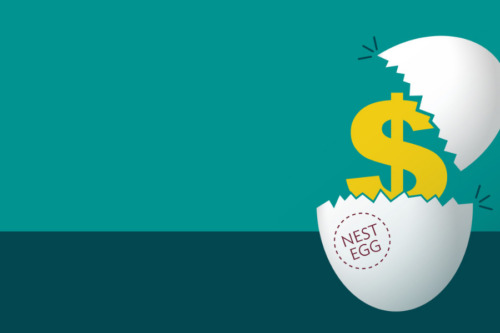Articles, Market Commentary
& More
Past Commentary & Articles

Elections have the ability to stir up emotions like nothing else, and even at this early stage in the election cycle, this presidential race has already moved into that territory. While political debate is healthy from a democratic process perspective, it can be dangerous if you allow politics to influence your investment decisions.

Have you ever opened a bank account for a temporary purpose, like holding house sale proceeds? These accounts might seem insignificant, but if you forget to designate beneficiaries, they can create a major headache for your loved ones after you’re gone.

While self-directed brokerage accounts (SDBAs) may entice employees with their vast investment choices, offering them within your retirement plan requires careful consideration. This article explores the fiduciary issues your committee must address to navigate the potential benefits and risks.

Just like a good spring cleaning refreshes your home, financial decluttering can revitalize your financial life. It helps you organize your money matters, reduce stress, and feel more in control of your financial future. Here are five key strategies to get you started.


In today’s fast-paced world, achieving financial stability and security has never been more crucial, yet it often takes a back seat. Whether you’re nearing retirement or a few years away, watch this recorded webinar to learn more about strategies to enhance your financial fitness.


Leaving old retirement accounts behind is a surprisingly common practice, with billions of dollars sitting dormant across the U.S. While this may seem like a win for organizations saving on service fees, the reality is more complex. Neglected accounts create burdens for both employers and employees.


While reviewing your estate planning documents may not be at the top of your to-do list, it’s a crucial aspect of financial preparedness. Like regular medical checkups, proactive attention ensures your estate plan aligns with your current circumstances and legal landscape.


Planning for retirement is more than just crunching numbers and chasing a dollar figure. It’s about entering your next chapter with the right frame of mind. A hidden obstacle may be a scarcity mindset. Let’s explore how this mindset can derail your retirement dreams and what you can do to overcome it.


Are you approaching retirement age and looking to navigate this exciting phase of your life with confidence? Or perhaps you’re planning way ahead, eager to take control of your financial future.


Life transitions can be difficult and one that is often underestimated is retirement. When the day finally comes, most retirees are unprepared for what happens next.


Like spring cleaning refreshes your home, a financial review can refresh your finances. Although it can initially seem daunting, breaking the process into steps makes it more manageable. Keep reading for a walk-through of reviewing your financial accounts, assets, liabilities, and estate plan.


After years of focusing on saving as much as possible, in retirement you’ll need to switch gears and figure out a way to replace your paycheck with your savings. Cracking into your nest egg in a tax- and risk-efficient manner while reinvesting enough to support the rest of your life can be a complex and challenging topic.



